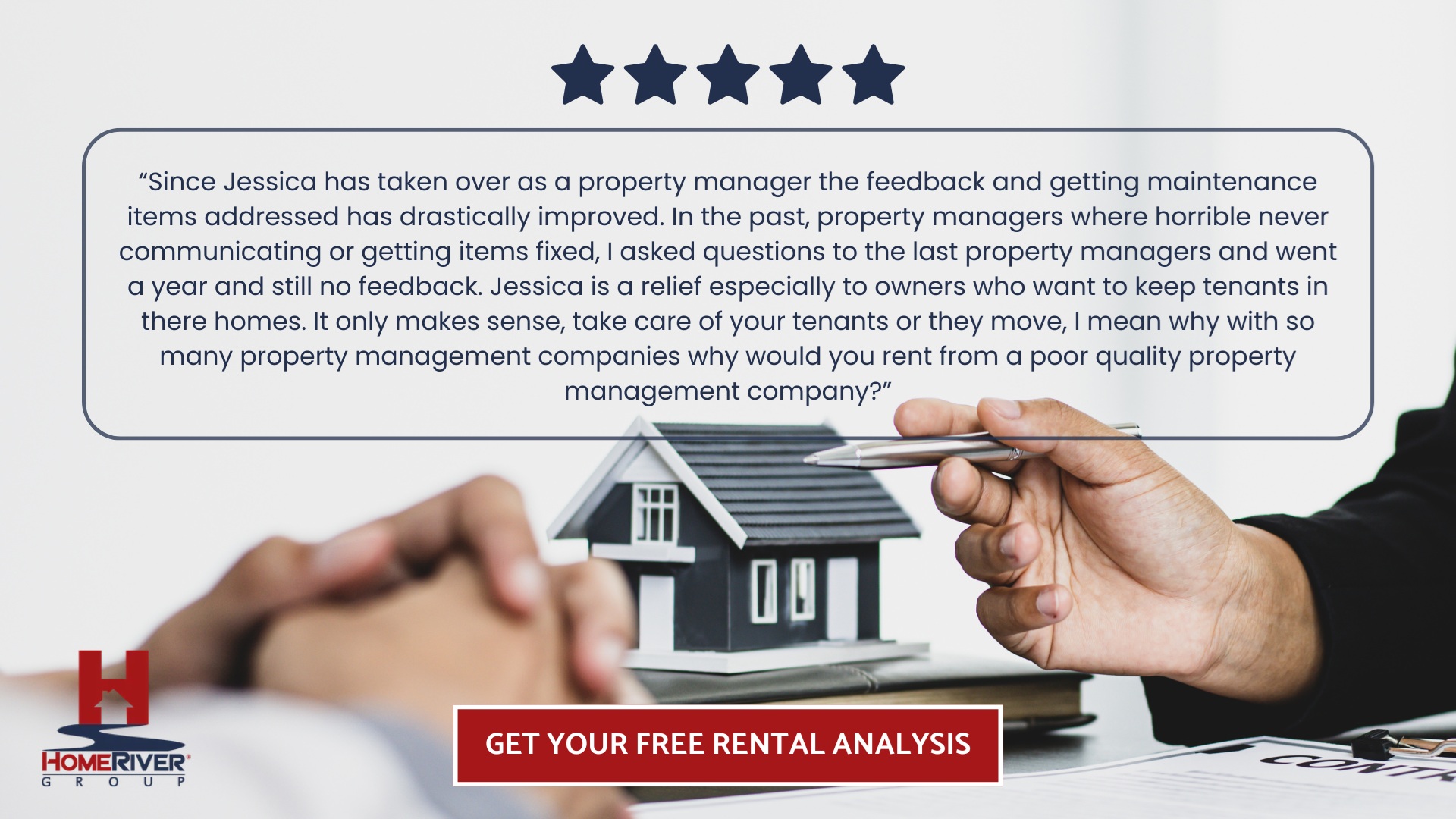
At HomeRiver Group, we understand that your property is your priority. This is why we are committed to providing exceptional service with local expertise. Our goal is to equip property owners with the knowledge and tools necessary to navigate the complex landscape of Idaho property law.
Like in any other state, Idaho's landlord-tenant relationship is governed by specific laws designed to protect both parties. However, navigating these regulations can be daunting for property owners. With the rental market ever-evolving, staying informed about what a landlord cannot do in Idaho is crucial to maintaining a harmonious landlord-tenant relationship and ensuring the success of your rental property.
This guide highlights critical prohibitions for landlords in Idaho, offering valuable insights into legal obligations and restrictions.
Scenarios Where Landlord Actions Are Considered Illegal
In Idaho, as in many states, landlords' rights and responsibilities are governed by specific laws designed to protect the property owner and the tenant. Understanding what a landlord cannot do is crucial for maintaining legal compliance and ensuring a successful landlord-tenant relationship. Additionally, for landlords or tenants exploring housing opportunities, knowing about the best neighborhoods in Boise can help identify ideal locations for rental investments or living arrangements.
Here, we outline critical scenarios where actions taken by landlords are considered illegal under Idaho law:
Entering The Property Without Proper Notice
Idaho law requires landlords to give tenants at least 24 hours notice before entering the rental property, except in emergencies. This rule is designed to respect the tenant's right to privacy. A landlord entering the property without providing the appropriate advance notice or obtaining the tenant's consent could be considered illegal unless it is to address an emergency that requires immediate attention.
Discrimination Against Tenants
Under federal and Idaho state law, landlords are prohibited from discriminating against potential or current tenants based on race, color, religion, sex, national origin, disability, or familial status. This includes any action, from refusing to rent to individuals based on these protected classes to setting different terms or conditions for certain tenants. Discrimination in any form is illegal and can subject landlords to legal action.
Unlawful Eviction Practices
A landlord cannot evict a tenant without following the proper legal procedure. This includes attempting to evict a tenant without a court order, using force or threats to remove a tenant, or engaging in "self-help" evictions, such as changing the locks, turning off utilities, or removing the tenant's belongings from the property. Such actions are considered illegal in Idaho and can have significant legal consequences for the property owner.
Retaliatory Actions
Landlords are not allowed to retaliate against tenants who exercise their legal rights, such as complaining about unsafe living conditions, requesting necessary repairs, or reporting violations of health and safety codes. This can include raising rent, decreasing services, or attempting to evict the tenant for reasons unrelated to lease violations. Retaliation is considered an illegal practice in Idaho and is punishable by law.
Withholding Security Deposits Without Justification
Idaho law stipulates that landlords must return a tenant's security deposit within 21 days after the lease has ended or provide a written statement explaining why any portion of the deposit is being kept. Withholding a security deposit without proper justification, such as to cover unpaid rent or the cost of damages beyond normal wear and tear, is illegal.
Property Maintenance And Repairs: Obligations And Boundaries
One of the core principles of being a landlord in Idaho, as in many states, is the responsibility to maintain a habitable property for tenants. This duty is legally binding and rooted in the state's landlord-tenant laws. However, it's equally important for landlords to recognize the boundaries of this obligation to avoid overstepping their rights or neglecting their duties. Understanding what a landlord cannot do concerning property maintenance and repairs in Idaho is crucial for maintaining a lawful and positive relationship with tenants and ensuring compliance with local regulations.
Obligation To Address Necessary Repairs: Landlords cannot ignore requests for necessary repairs that affect the property's habitability, such as broken heating systems, plumbing issues, or substantial defects that make the property unsafe or unlivable.
Entering Tenant's Property: Landlords are not entitled to enter a tenant's property without proper notice, except in emergencies. A 24-hour notice is required before entering the premises for maintenance or repairs.
Financial Responsibility For Repairs: Landlords cannot pass on the financial responsibility for essential property repairs and maintenance to tenants outside of what is agreed upon in the lease.
Limitations On Cosmetic Repairs: While landlords must address critical repairs, they are not obligated to fulfill cosmetic or non-essential tenant requests, as these do not typically affect the unit's habitability.
Misconceptions About Raising Rent In Idaho
Misconceptions abound in property management, particularly concerning the regulations for raising rent in Idaho. If you're curious about how these regulations align with the average rent in Boise, understanding local trends can offer valuable insights for setting competitive yet fair rental prices. At HomeRiver Group, we prioritize offering clarity and comprehensive support to owners, ensuring that your property management strategy is compliant and efficient.
Here, we dispel some common myths and present the facts about raising rent in Idaho.
Myth 1: Landlords Can Raise Rent Whenever They Want
One prevalent misconception is that landlords have the unrestricted right to increase rent at any point during the tenancy. However, Idaho law requires landlords to provide proper notice before implementing any rent increase. For a month-to-month rental agreement, landlords must give at least one month's written notice before the rent increase takes effect. This ensures tenants have ample time to adjust their budgets or explore other housing options if necessary.
Myth 2: There Is No Cap On How Much Rent Can Be Increased
Another widespread belief is that no legal limitations exist on how much a landlord can raise the rent. While it's true that Idaho does not implement statewide rent control policies seen in other states, this does not mean landlords have carte blanche to set rent increases arbitrarily. Rent hikes must be reasonable and justifiable, considering market rates, property improvements, and maintenance needs. Drastic increases could be challenged as retaliatory or discriminatory, both illegal actions for landlords in Idaho.
Myth 3: Rent Can Be Raised Without Written Notice
Verbal agreements or implied consent for rent increases do not hold up under Idaho law. All rent adjustments must be communicated through written notice, providing a clear, documented record of the change and its effective date. This safeguards both the landlord and the tenant, ensuring there's no ambiguity about the terms of the rental agreement.
Handling Tenant Property Post-Eviction: Dos And Don'ts
Understanding the legal requirements for handling a tenant's property following an eviction is crucial for property owners in Idaho. This knowledge protects the landlords' and tenants' rights while minimizing potential legal issues. Idaho law specifies certain actions that landlords cannot undertake when dealing with tenant property post-eviction, and being informed of these can help maintain a professional and lawful property management approach. For those considering property investment or relocation, it’s also worth exploring if Boise is a good place to live, as the city's vibrant community and growth offer unique opportunities.
Dos:
Provide Written Notice: Idaho landlords must give former tenants written notice regarding their belongings after an eviction. This notice should detail how and when they can reclaim their property. It's a crucial step to ensure tenants are informed and have the opportunity to retrieve their belongings within the prescribed timeframe.
Store Property Safely: Landlords must safely store the tenant's property for a period. The exact duration can vary, so it’s important to consult local statutes to understand the specific timeframe applicable in your area. This period allows tenants to claim their belongings, minimizing the risk of loss or damage.
Allow Tenant Retrieval: Make arrangements to allow the evicted tenant reasonable access to retrieve their property within the timeframe stipulated by local laws. A clear process for this can help avoid misunderstandings and potential disputes.
Don'ts:
Dispose Of Property Immediately: Landlords cannot immediately dispose of or sell a tenant's property following an eviction. Idaho laws require property to be held for a certain period, during which the tenant can reclaim their belongings.
Charge Excessive Storage Fees: While landlords may charge a reasonable fee for storing the tenant’s property, these fees should not be excessive. Understanding and complying with local regulations regarding such fees is important to avoid legal complications.
Harass Or Intimidate: It’s illegal for landlords to use a tenant’s property as leverage or to harass or intimidate the tenant. All actions taken regarding the tenant’s property post-eviction should comply with Idaho law and be carried out professionally.
Navigating Legal Dispute Resolution As A Landlord
When managing a property in Idaho, landlords must understand the legal frameworks that govern how disputes between landlords and tenants should be resolved.
Here's how landlords can navigate legal dispute resolution effectively and within the bounds of Idaho law.
Understanding Idaho Landlord-Tenant Laws
First and foremost, landlords must have a comprehensive understanding of Idaho landlord-tenant laws. These statutes cover lease agreements, security deposits, eviction processes, and property maintenance standards. Familiarizing oneself with these laws is the first step in resolving any disputes that may arise professionally and legally.
Communication Is Key
Before any legal action is considered, open and direct communication with the tenant is advisable. Many disputes can be resolved amicably through discussion, negotiation, and compromise. Landlords should document all communications to ensure a clear record of discussions and agreements.
Mediation Services
Mediation is a viable next step when direct communication cannot resolve disputes. This involves a neutral third party helping landlords and tenants reach an agreement. Mediation can be a faster, less expensive, and more amicable solution than proceeding directly to court.
The Small Claims Court
For disputes involving specific sums of money (typically not exceeding $5,000 in Idaho), the small claims court offers a more straightforward and less formal setting for resolution. Landlords should prepare all necessary documentation and evidence to support their case, understanding that both parties will have the opportunity to present their side.
Seeking Legal Advice
When disputes are complex or cannot be resolved through the abovementioned means, seeking legal advice may be necessary. Professionals experienced in Idaho property law can provide guidance, represent landlords in court if needed, and help navigate the intricacies of legal proceedings. HomeRiver Group is ready to assist landlords with its extensive expertise in property management law and deep understanding of local Idaho regulations. Our goal is to ensure that every dispute is resolved fairly, efficiently, and within the legal frameworks of Idaho, reflecting our commitment to exceptional service and local expertise.
Final Thoughts
Understanding what a landlord cannot do in Idaho is crucial for property owners and renters to ensure a fair and respectful tenant-landlord relationship. Idaho's laws are designed to protect the rights and interests of both parties, but navigating these regulations can sometimes be challenging. That's where HomeRiver Group's expertise and experience come into play.
As the premier national property management company, HomeRiver Group is equipped with the local knowledge and operational capabilities necessary to guide property owners through the complexities of Idaho's property laws. We pride ourselves on our strategic approach to property management, ensuring compliance with Idaho's unique regulations while maximizing property value and tenant satisfaction.
Trust HomeRiver Group to navigate these waters efficiently, making your property our priority.
Read also:
Frequently Asked Questions About What A Landlord Cannot Do In Idaho
What restrictions are there on raising rent in Idaho?
In Idaho, landlords can raise rent by any amount. However, they must provide tenants with a one-month notice for month-to-month leases. For fixed-term leases, rent cannot be increased until the lease term ends unless the lease agreement specifies otherwise.
Is it legal for Idaho landlords to lock out tenants?
No, in Idaho, landlords are prohibited from locking out tenants or attempting to force them out of their rental units without going through the legal eviction process. Such actions can lead to potential legal consequences for the landlord.
Can a landlord in Idaho shut off utilities as a form of eviction?
In Idaho, it is illegal for a landlord to shut off utilities, including water, gas, or electricity, to evict a tenant. Such actions must be carried out following legal eviction procedures.
Can a landlord in Idaho enter a rental property without notice?
Landlords in Idaho must give tenants reasonable notice, typically at least 24 hours, before entering a rental property, except in cases of emergency, repairs, or when it is reasonably believed that the property has been abandoned.
How much notice must Idaho landlords give to terminate a tenancy?
For month-to-month tenancies in Idaho, landlords are required to give tenants a 30-day notice for termination. For fixed-term leases, the lease generally dictates the terms for termination.
What types of repairs is a landlord in Idaho not allowed to ignore?
Landlords in Idaho must ensure their properties meet basic health and safety standards. This includes maintaining structural integrity, safe electrical systems, adequate water and heating, and sanitation facilities. Landlords cannot ignore requests for repairs that affect the property's livability.










